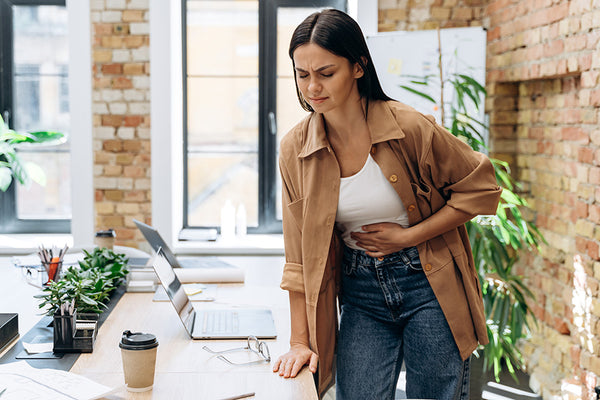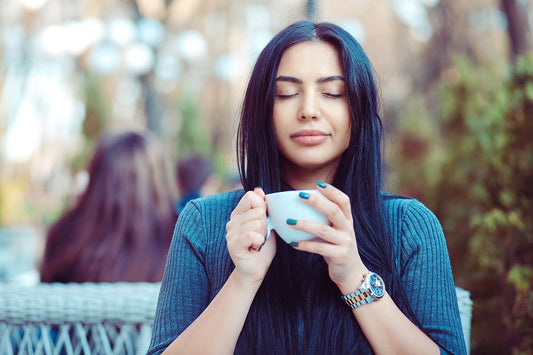Beat Period Pain
Updated
One in five women who suffer period pain (also known as dysmenorrhoea, menstrual pain or menstrual cramps) say the pain is severe enough to interfere with their ability to function normally one to three days every month. No wonder menstrual cramps are the leading cause of absenteeism in women under the age of 30.
What causes period pain?
Primary dysmenorrhoea (the most common type of period pain) is caused by uterine contractions that are too strong and occur too frequently. Between contractions the uterine muscle does not relax properly and there is an unusually high ‘resting tone’. The effect of this is a reduction in the amount of blood fl owing through the uterine muscle.
The usual cause of primary dysmenorrhoea is excess production of short-acting fatty-acid hormones known as leukotrienes and series two prostaglandins. These are highly inflammatory compounds that increase blood clotting and cause the pain of dysmenorrhoea. Excess production of these compounds in women with period pain is often a result of a high intake of animal fat in the diet and high oestrogen levels resulting in hormonal imbalance.
Most women with primary dysmenorrhoea describe the pain as constant dull background aches or a sense of heaviness, accompanied by cramping. The pain is usually located in the lower abdomen and often starts at the beginning of the period, intensifying as the flow becomes heavier.
Secondary dysmenorrhoea occurs when period pain is caused by another complaint, for example (and commonly) endometriosis or pelvic inflammatory disease (PID).
Herbs that help
- Asparagus (Shatavari) traditionally used in ayuvedic medicine as a female tonic, Shatavari is balancing and normalising to the reproductive organs and can be used safely in girls experiencing period pain.
- False Unicorn (Chamaelirium luteum), Dong Quai (Angelica polymorpha) and Raspberry Leaf (Rubus idaeus) are herbs used for centuries in western herbal medicine that are thought to regulate the muscular activity of the uterus, encouraging uterine contractions that are regular, rhythmic and more orderly.
- Black Haw (Viburnum prunifolium) and Wild Yam (Dioscorea villosa), traditionally used in western herbal medicine are antispasmodic herbs that can help to alleviate menstrual pain and cramps that come in intermittent waves. They are also useful for alleviating the vomiting and diarrhoea that sometimes accompanies period pain. These herbs are best taken several days before the onset of menstruation.
Tips for alleviating period pain
- Exercise regularly.
- Eat a balanced diet low in refined sugars.
- Eat calcium-rich foods such as yogurt or leafy green vegetables.
- Cut down on caffeine, alcohol, red meat and salty foods.


